Abstract
Early detection of residents' learning difficulties helps teachers offer appropriate help. During a series of educational workshops, a variety of behaviours associated with learning difficulties were described and four behavioural categories were established: limited cognitive response, disturbed affective response, deviant moral response, and diminished self-motivation.
Full text
PDF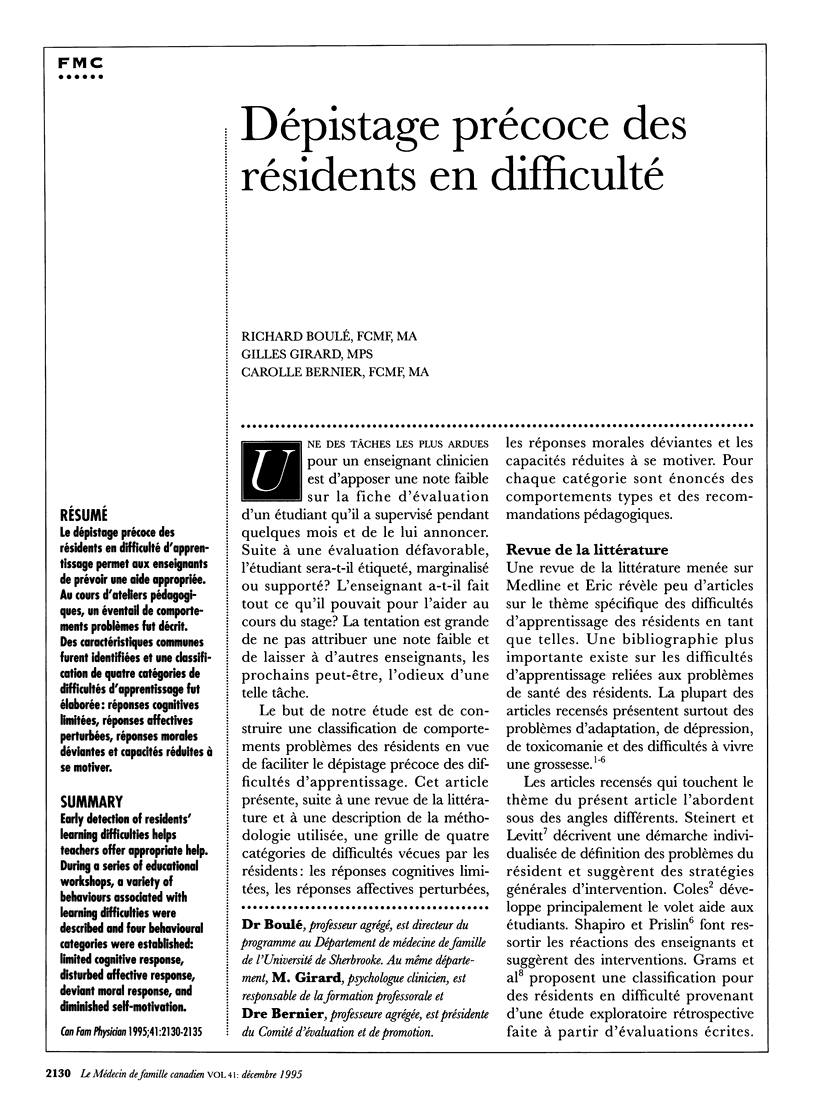
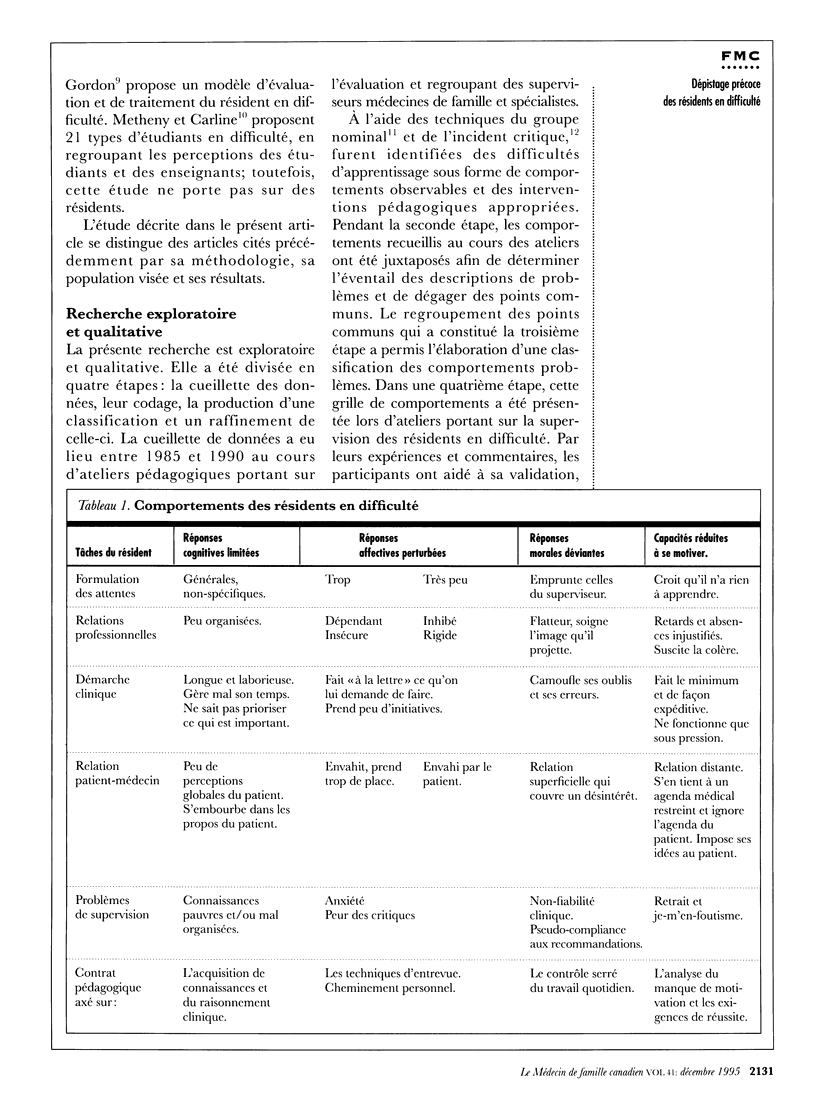
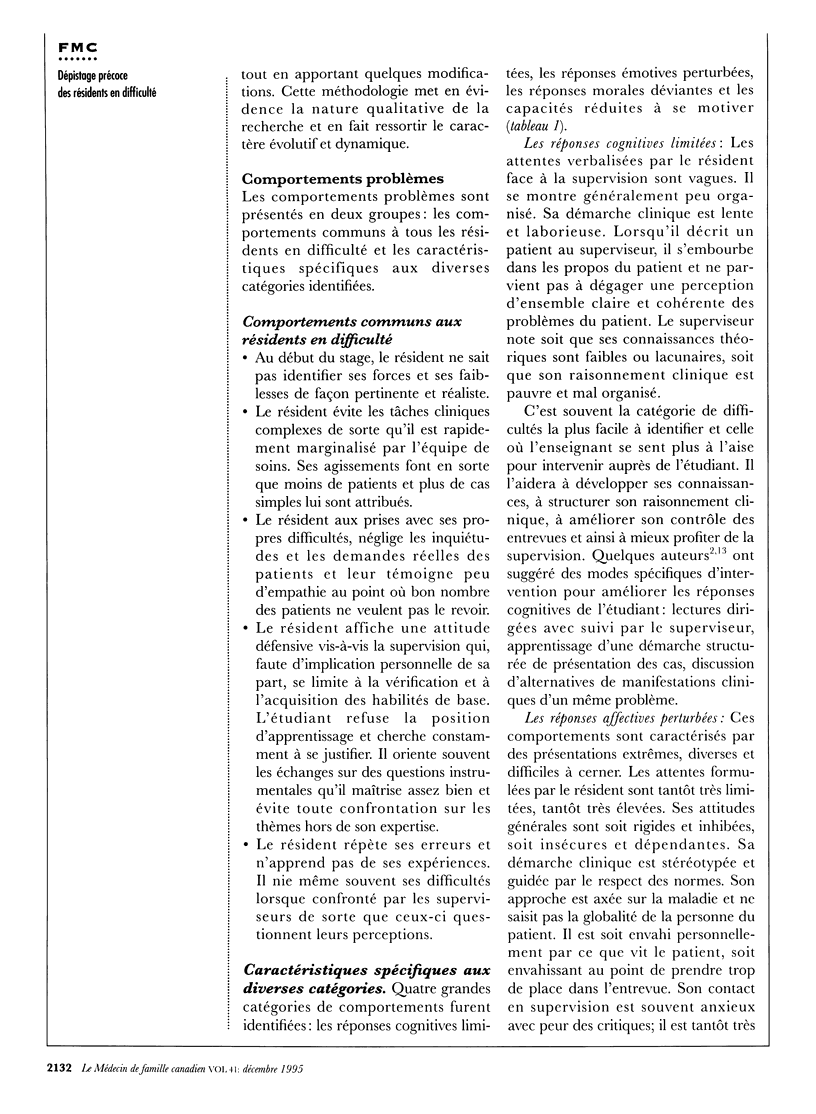
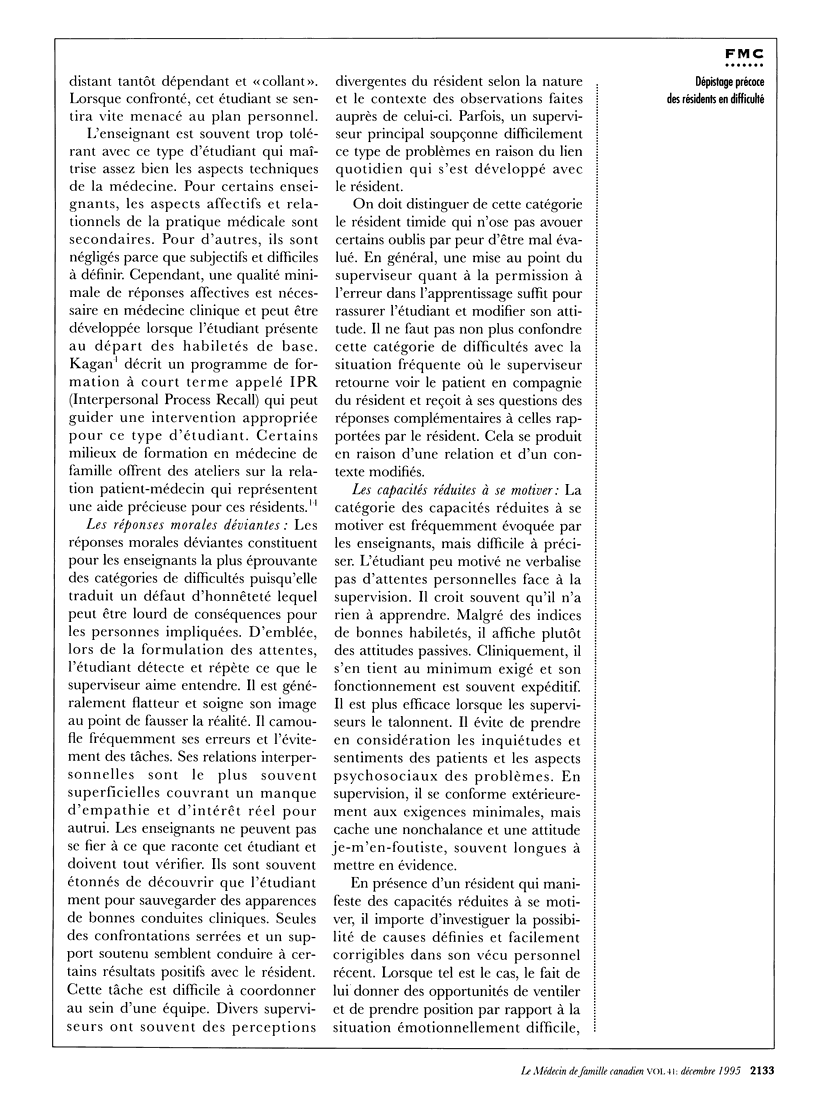
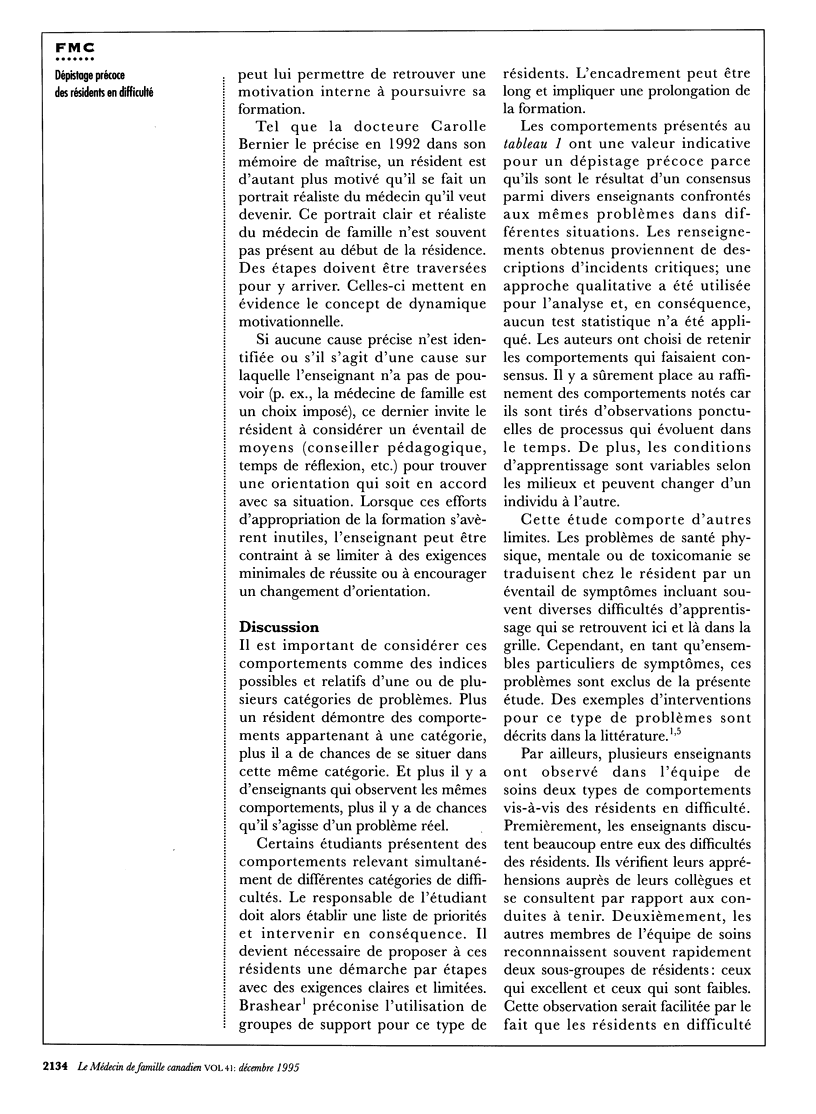
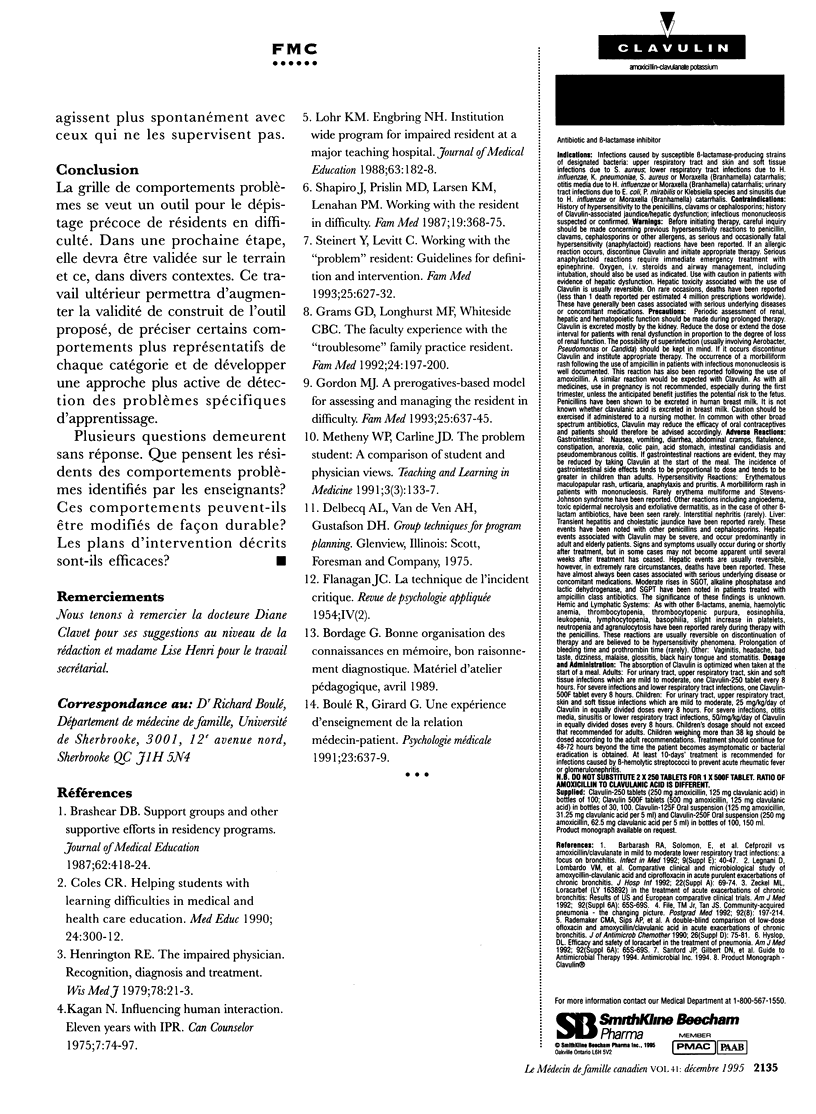
Selected References
These references are in PubMed. This may not be the complete list of references from this article.
- Coles C. R. Helping students with learning difficulties in medical and health-care education. Med Educ. 1990 May;24(3):300–312. [PubMed] [Google Scholar]
- Gordon M. J. A prerogatives-based model for assessing and managing the resident in difficulty. Fam Med. 1993 Nov-Dec;25(10):637–645. [PubMed] [Google Scholar]
- Grams G. D., Longhurst M. F., Whiteside C. B. The faculty experience with the "troublesome" family practice resident. Fam Med. 1992 Mar-Apr;24(3):197–200. [PubMed] [Google Scholar]
- Lohr K. M., Engbring N. H. Institution-wide program for impaired residents at a major teaching hospital. J Med Educ. 1988 Mar;63(3):182–188. doi: 10.1097/00001888-198803000-00005. [DOI] [PubMed] [Google Scholar]
- Shapiro J., Prislin M. D., Larsen K. M., Lenahan P. M. Working with the resident in difficulty. Fam Med. 1987 Sep-Oct;19(5):368–375. [PubMed] [Google Scholar]
- Steinert Y., Levitt C. Working with the "problem" resident: guidelines for definition and intervention. Fam Med. 1993 Nov-Dec;25(10):627–632. [PubMed] [Google Scholar]


